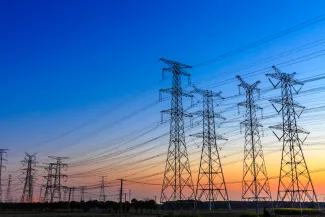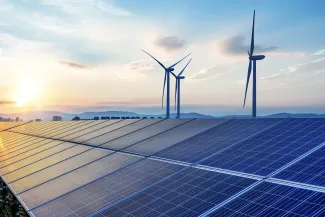
Colorado will continue closing coal-fueled electric plants in 2025, all by 2031
Colorado is slowly phasing out the last of its coal-fueled electrical power plants, even though they still generated a third of the state’s total in-state energy generation in 2023.
The Colorado Department of Labor and Energy reports that 10 coal-fired units remain operational throughout the state. One of those 10 is scheduled to close by the end of this year, with the remaining nine units all set to close by the end of 2031.
The department reports that the plants are closing for a “variety of reasons.”
“The era of coal in Colorado appears to be ending, and that poses serious challenges to the workers and communities that rely on it,” it states.

© zhaojiankang - iStock-802436842
Currently, 722 employees work at those 10 units. In 2019, the Colorado General Assembly passed the Colorado Just Transition Action Plan, which made a “moral commitment to assist the workers and communities that have powered Colorado for generations” by supporting “a just and inclusive transition” away from coal.
Some advocates are skeptical of the move away from coal. In 2023, the U.S. Energy Information Administration reported that coal-fired power plants accounted for 32 percent of Colorado's total in-state energy generation.
While down significantly from 68 percent in 2010, that is still a notable portion of the state’s energy generation.
Additionally, a 2022 report from the U.S. Energy Information Administration found that, between coal, petroleum and natural gas, coal produced the least amount of the state’s carbon dioxide emissions.
The report found that almost all of coal’s emissions were due to the electric power sector, while petroleum’s was from transportation, and natural gas was almost evenly distributed throughout the sectors, including electric power.

That’s a cause for concern for some environmental groups, especially as some of the closing coal-fueled electrical power plants are transitioning to natural gas-fueled power plants.
The CoPIRG Foundation argued in November that the state should instead be transitioning to 100 percent renewable electricity sources like wind and solar.
“At a time when we need to be switching all of our fossil fuels to renewables to protect our health and tackle climate change, we can’t afford to build new gas plants,” said Danny Katz, executive director of the foundation.
Currently, Colorado has a clean energy goal of 100 percent clean electricity generation by 2040, with benchmarks along the way.
“In Colorado, we are proudly leading the way with innovation and collaboration to build a clean energy future that creates more good-paying jobs,” Governor Jared Polis said recently. He also lauded Colorado for continuing “to push forward on the cutting edge of climate technology.”
Independence Institute, a Colorado-based libertarian think tank, has expressed concerns about the state’s push for total decarbonization and increased costs to Coloradans.
The institute argues that incorporating nuclear power will help with that transition.
“Colorado is shutting down coal plants and replacing them with unreliable renewables,” it said. “State law demands 100 percent decarbonization by 2040, yet without nuclear power — the most reliable, local, and carbon-free energy source — our grid is at risk.”
















